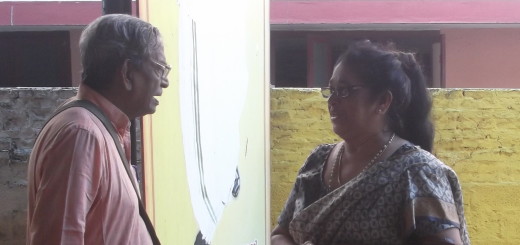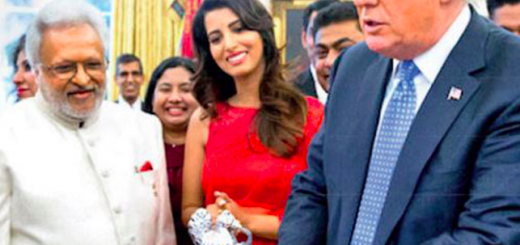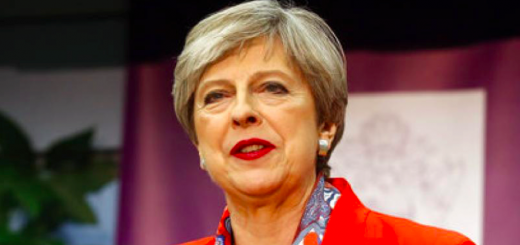Barack Obama pays tribute at Hiroshima nuclear memorial
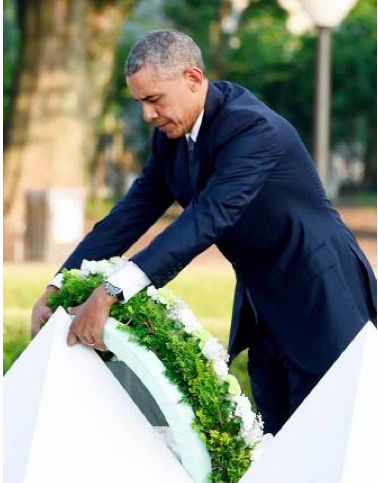
Obama at Hiroshima – In Times of India, May 27, 2016,
(Note: "Death fell from the sky and the world was changed," Obama said, after laying a wreath at Hiroshima's Peace Memorial Park. He should rather have said, I think, 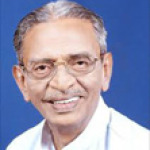 death was dropped deliberately from the sky and 1400, 000 precious human lives were mercilessly extinguished on August 6, 1945. Were they not the facts? “Doctor heal yourself first” has no meaning for the sick doctor who does not admit he is sick…. For full editorial see: No apology for drooping nuc on Japan? In CCV. James kottoo, editor)
death was dropped deliberately from the sky and 1400, 000 precious human lives were mercilessly extinguished on August 6, 1945. Were they not the facts? “Doctor heal yourself first” has no meaning for the sick doctor who does not admit he is sick…. For full editorial see: No apology for drooping nuc on Japan? In CCV. James kottoo, editor)
HIROSHIMA: Barack Obama on Friday paid tribute to the 140,000 people killed by the world's first atomic bomb attack and sought to bring global attention to his unfulfilled vision of a world without nuclear weapons, as he became the first sitting US president to visit Hiroshima.
"Death fell from the sky and the world was changed," Obama said, after laying a wreath, closing his eyes and briefly bowing his head before an arched monument in Hiroshima's Peace Memorial Park that honors those killed on August 6, 1945, when US forces dropped the bomb that ushered in the nuclear age. The bombing, Obama said, "demonstrated that mankind possessed the means to destroy itself."
Obama did not apologize, instead offering, in a carefully choreographed display, a simple reflection on the horrors of war and his hope the horror of Hiroshima could spark a "moral awakening." As he and Japanese Prime Minister Shinzo Abe stood near an iconic bombed-out domed building, Obama acknowledged the devastating toll of war and urged the world to do better.
"We stand here in the middle of this city and force ourselves to imagine the moment the bomb fell … we listen to a silent cry." Obama said.A second atomic bomb, dropped on Nagasaki three days later Hiroshima, killed 70,000 more.
Obama also sought to look forward to the day when there was less danger of nuclear war. He received a Nobel Peace Prize early on his presidency for his anti-nuclear agenda but has since seen uneven progress.
"We must have the courage to escape the logic of fear and pursue a world without them," Obama said of nuclear weapons.
The visit presents a diplomatic tightrope for a US president trying to make history without ripping open old wounds. He did not apologize for the attack, which is viewed by many in the US as having hastened the end of World War II; others have called it a war crime that targeted civilians.
Critics believe Obama's mere presence in Hiroshima will be viewed as an apology for what they see as a justified attack. But he has also drawn praise from those who see it as a long overdue gesture needed to heal old wounds.
Obama touched down in Hiroshima after completing talks with world leaders at an international summit in Shima, Japan.Those who come to ground zero at Hiroshima speak of its emotional impact, of the searing imagery of the exposed steel beams on the iconic A-bomb dome. The skeletal remains of the exhibition hall have become an international symbol of peace and a place for prayer.
The president was accompanied on his visit by Abe — a demonstration of the friendship that exists between the only nation ever to use an atomic bomb and the only nation ever to have suffered from one. US Ambassador to Japan, Caroline Kennedy, also joined the president.
Bomb survivor Kinuyo Ikegami, 82, paid her own respects at the cenotaph on Friday morning, well before Obama arrived, lighting incense and chanting a prayer.Tears ran down her face as she described the immediate aftermath of the bomb.I could hear schoolchildren screaming: `Help me! Help me!"' she said. "It was too pitiful, too horrible. Even now it fills me with emotion."
Han Jeong-soon, the 58-year-old daughter of a Korean survivor, was also at the park Friday.
"The suffering, such as illness, gets carried on over the generations — that is what I want President Obama to know," she said. "I want him to understand our sufferings."
Obama's visit is a moment 71 years in the making. Other American presidents considered coming, but the politics were still too sensitive, the emotions too raw. Jimmy Carter visited as a former president in 1984.
Even now, when polls find 70 percent of the Japanese support Obama's decision to come to Hiroshima, Obama's visit is fraught.His choreographed visit will be parsed by people with many agendas.
There are political foes at home who are ready to seize on any hint of an unwelcome expression of regret.
There are Koreans who want to hear the president acknowledge the estimated 20,000-40,000 of their citizens who were among the dead in Hiroshima and Nagasaki.
There are blast survivors who want Obama to listen to their stories, to see their scars — physical and otherwise.There are activists looking for a pledge of new, concrete steps to rid the world of nuclear weapons.
There are American former POWs who want the president to fault Japan for starting the war in the Pacific
Mr. Obama at Hiroshima – The Hindu Editorial, May 28, 2016
As expected, U.S. President Barack Obama did not utter any apology on behalf of his country for dropping an atomic bomb on Hiroshima in 1945. But such is the power of personal presence that by the simple act of laying a wreath at the Hiroshima Peace Memorial on Friday, he sent out an uncommonly gripping message: you cannot truly commit yourself to preventing a repeat of an atrocity if you do not admit in the most candid manner that it in fact occurred. Mr. Obama did so with a gesture that will be one of the defining images not only of his presidency but also of the wider struggle to rid the world of nuclear weapons, when he embraced a survivor of the attack. The visit did not have the high emotionalism of Willy Brandt’s trip to Warsaw, when the West German Chancellor fell to his knees, but the drift of history that Mr. Obama was tugging at was different. He was walking through such a political minefield to make it to the memorial that it had not been certain till almost the last moment whether he would even meet the survivors, or hibakusha. “Death fell from the sky,” Mr. Obama said of the Hiroshima bombing, and it showed that “mankind possessed the means to destroy itself.” The nearest any previous occupant of the White House had come to acknowledging the devastation caused by the bombings in Hiroshima and Nagasaki was Jimmy Carter, but only after he demitted office. Mr. Obama’s call for a “moral revolution” issued at Hiroshima makes the sober, and sobering, point that the wrongs of living memory cannot be evaded, no matter what the provocation, and he did dwell on wartime Japan’s excesses.
On a narrower time horizon, Mr. Obama’s visit to Hiroshima can be viewed against the backdrop of his landmark address in Prague in 2009, when he laid bare his disarmament agenda. He declared that as the only country to have deployed the nuclear weapon, the U.S. had a moral responsibility to act. Those remarks earned Mr. Obama plaudits from the global peace movements, whereas hawks at home attacked him as an apologist President. But the pragmatist in Mr. Obama minced no words in Prague, in saying that as long as nuclear weapons were around, the U.S. would maintain a credible deterrent, even while striving for a reduction in the arsenals of Washington and Moscow. More recently, he made it clear that the point of the visit to Hiroshima was not to revisit Harry Truman’s decision. Therein lurks a hard-nosed, statesman-like approach to rid the world of nuclear weapons. In his two terms in the White House, Mr. Obama has made a modest beginning. Understanding his realism is critical to covering the long and arduous road ahead.

